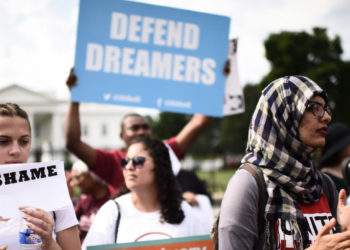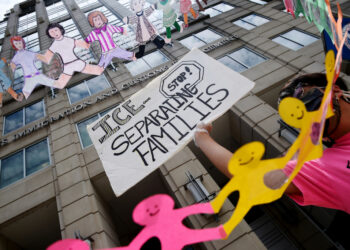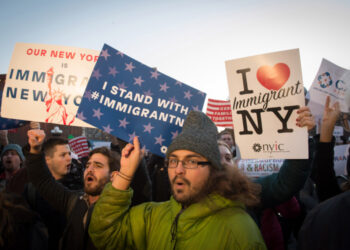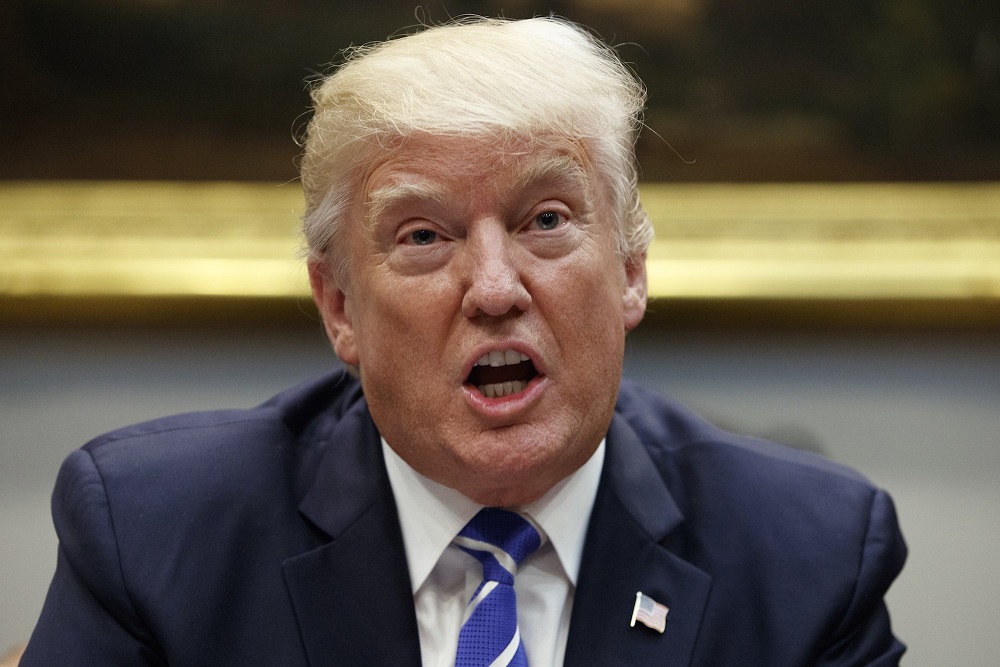President Donald J. Trump’s decision to end the Deferred Action for Childhood Arrivals (DACA) program with a six-month delay to allow Congress to take action, unnecessarily upends the lives of 800,000 beneficiaries as well as those of millions of others from families to friends who care about them.
DACA was established by President Barack Obama in 2012 after Congress failed to pass the DREAM Act, which would have allowed certain individuals who immigrated to the United States as children to qualify for legal status. And the people who have qualified for the program are essentially Americans because regardless of their legal status, they have strong ties to the U.S. and are members of our communities.
Although Attorney General Jeff Sessions’ remarks rescinding DACA claimed that this program was an overreach of power that undermined the rule of law, in fact, presidents have prosecutorial discretion, that is, the authority to set priorities in determining how law enforcement resources will be used and whether or not to proceed against particular individuals. A November 2014 letter signed by prominent law professors across the country explains, “when prosecutorial discretion is exercised, particularly when the numbers are large, there is no legal barrier to formalizing that policy decision through sound procedures that include a formal application and dissemination of the relevant criteria to the officers charged with implementing the program and to the public.” Previous administrations have also exercised prosecutorial discretion, so DACA merely formalized a previously ad-hoc approach.
As a professor who has done research on immigration issues for decades, I have seen the pride on parents’ faces as their children fill out the forms to qualify for the program, the photos on the pile of elementary, middle school and high school IDs that applicants provide as proof of continuous presence, and the relief that young parents who qualify feel in realizing that they can get better jobs to support their kids.
I have heard the mixture of pride and reticence in my own students’ voices as, during office hours, they tell me that they have DACA. I have listened to young people who I have interviewed for my research describe how the program provided them with the security to go to school, get jobs, speak out on their campuses, contribute to their families’ incomes, and plan for their futures. I have also witnessed the panic and turmoil that occurred as recipients, student activists, and university faculty and administrators realized that a candidate who had pledged to end the program had been elected president.
Unchartered waters
Rescinding DACA with a six-month delay exacerbates this turmoil. It is not clear whether Congress will take action, or what might be approved. Senators Richard Durbin (D-IL) and Lindsey Graham (R-SC) have introduced legislation that would allow recipients to become lawful permanent residents, but it is unknown whether there is sufficient support for this or similar bills, or whether any effort to extend the program legislatively might be coupled with objectionable measures.
Meanwhile, it is not clear what a six-month delay means for DACA recipients’ ability to study, work, and live in the U.S., either. Mr. Trump’s decision puts recipients at risk of losing jobs, internships, educational opportunities, and the futures that they have pursued. The psychological impact is likely to be extreme as DACA holders experience sorrow, shame, anger, and a sense of betrayal. Recipients and their allies are not likely to passively accept these outcomes. Already there have been mobilizations, rallies, and direct actions in support of the program and immigration rights more generally.
Granting these young people and their families permanent status would provide accountability for U.S. actions that contributed to the circumstances that compelled people to immigrate. U.S. intervention in political conflicts in Central America helped to force thousands out of El Salvador, Guatemala, and Nicaragua, and both the insecurity that has arisen in the wake of Central American wars and the instability caused by U.S. deportation policies have contributed to continued migration.
Moreover, historically, U.S. companies have recruited immigrants into the country as employees. One way to understand the presence of the young people who have applied for DACA is through the famous saying, “We asked for workers, but families came.”
As I contemplate the harm that the suspension of DACA will wreak, I have to ask, what is accomplished and for whom? And why do immigrants once again have to bear the burden of political divisiveness in the U.S.?
Disclaimer: The views and opinions expressed here are those of the author and do not necessarily reflect the editorial position of The Globe Post.






















